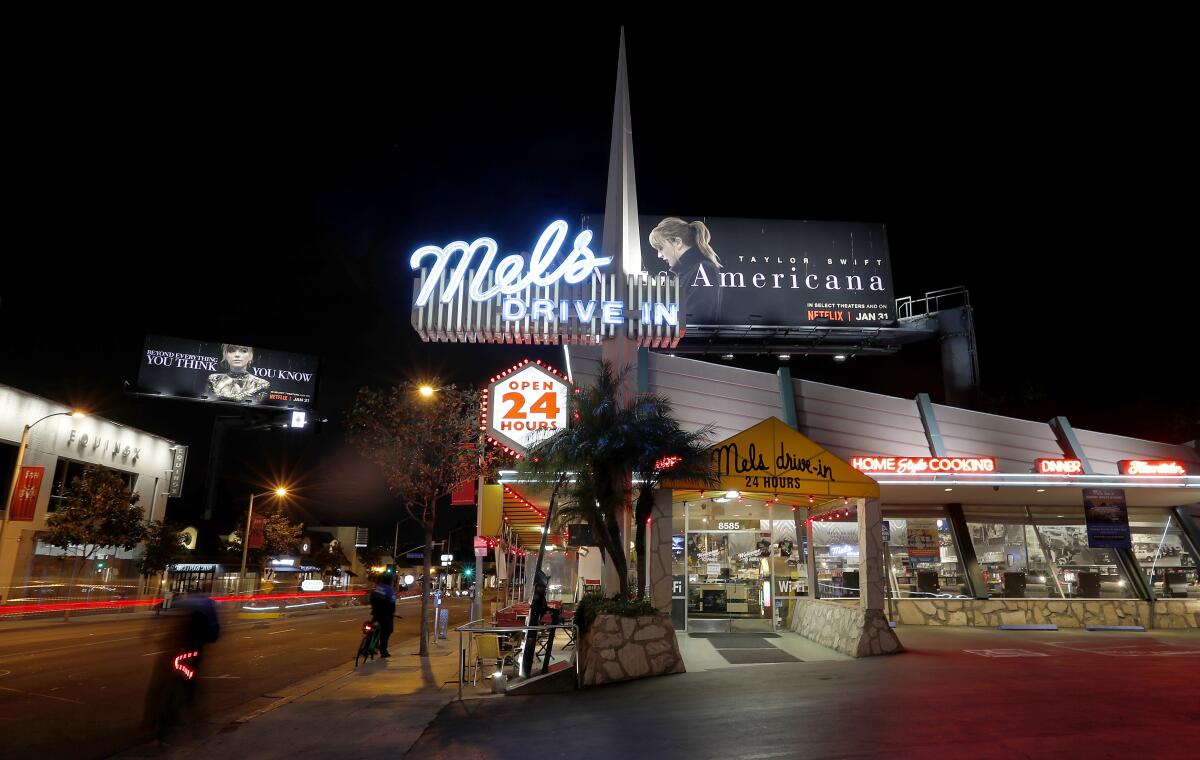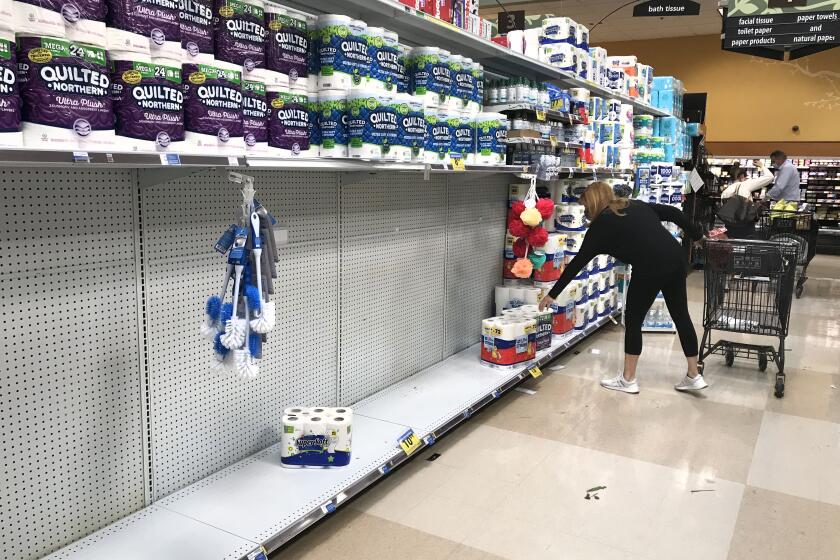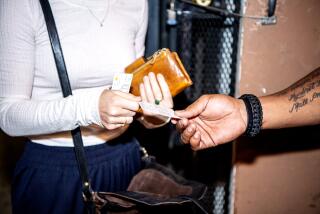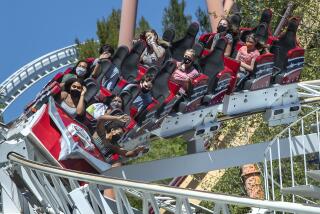Late-night restaurant owners want to play fair. So far, they say, Newsom hasn’t
When the first pandemic shutdown hit in March, Brett Gallo, owner of the Bamboo Club in Long Beach, had to find creative ways to do business. He pivoted to delivery and created a pickup system in the Bamboo Club’s parking lot for drive-through customers.
When the second pandemic shutdown hit in July and outdoor dining spaces were allowed to open, Gallo spent thousands of dollars on renting and installing a large tent, tables, fencing and tiki-style decorations on that same parking lot to create the best outdoor tiki-bar experience for his customers.
Business, finally, was starting to pick up, he said.
On Thursday, California Gov. Gavin Newsom announced a third shutdown prohibiting nonessential gatherings between 10 p.m. and 5 a.m. as another wave of the coronavirus sweeps through the country. The state has reported an average of more than 10,000 new cases each day over the last week.
California has not experienced a daily case count this high since the outbreak began, even during the surge in the summer that stands as the state’s deadliest period during the COVID-19 pandemic.
This time, Gallo said he feels more prepared and a little less worried. But it doesn’t feel any more fair.
“In Long Beach in particular, I thought we were doing a good job,” he said. “Are these cases coming from outdoor dining? I don’t think so.”
Like Gallo, other late-night restaurant and bar owners feel that the third pandemic shutdown is an unfair punishment that isn’t getting to the root cause of the coronavirus surge. Restaurant owners say the new order once again ignores the needs of small businesses and will push patrons to gather in their homes instead, where the virus will continue to silently spread, unregulated.
“I’m definitely very supportive and I follow the science,” Gallo said. “But the outdoor stuff I think is the safest.”
The order prohibits most nonessential activity outside the home from 10 p.m. to 5 a.m. in counties in the strictest tier of the state’s reopening road map. It begins Saturday.

Colton Weiss, owner of Mel’s Drive-in restaurant, said business was beginning to pick up for him as well. He had spent a lot of money, he said, on installing furniture and dividers for his outdoor patio space that was finally starting to show results.
Now, Weiss said he’ll have to cut his longtime employees’ hours.
“I’d rather not,” Weiss said. “This was not ideal for any of us. This will cut off a good portion of our late-night sales.”
Weiss said he thinks his patrons will simply continue gathering at home.
“People still want to be social,” he said. “People are still going to go out and they’re not going to be doing it at restaurants anymore. They’ll be going to their houses.”
According to a U.S. Centers for Disease Control and Prevention report, adults with positive coronavirus test results were about twice as likely to have reported dining at a restaurant than those who tested negative.
One problem, researchers say, is that eating and drinking inevitably requires customers to remove their masks, which raises the risk of spreading the virus, especially during animated conversations. When patrons are drinking late into the night, they are more likely to let their guard down.
While accepting an award this week from San Jose State University, Dr. Anthony Fauci, the U.S. government’s top infectious diseases expert, said that a policy of ordering bars and restaurants to close at an earlier time has helped to control the pandemic in other countries.
“When you look at what happens as you get late into the evening, people let down their guard, people maybe drink a little bit too much, people get in congregate settings,” Fauci said. He said it was sound to shorten such business hours to control the pandemic.
Corissa Hernandez, owner of Xelas in Boyle Heights and the newly opened Nativo in Highland Park, said she implemented the rules early after hearing the announcement.
She’s aware that the virus has disproportionately affected Black and Latino lives in communities such as Boyle Heights, so she takes her community’s safety seriously, she said.
“Keeping the community safe is of utmost importance to us,” she said. “If it means shutting down, I’m OK with that as long as it’s across the board and it’s fair.”
But Hernandez feels that the way Newsom and local government have arrived at decisions to implement new rules excludes business owners who are in the trenches doing their best to salvage their businesses and local economies.
She also feels the rules implemented so far haven’t been enforced fairly, and she said she would have liked to see local business owners have a say in the decisions made across the state and county.
“The communication needs to be more clear and not as insensitive as it has been,” she added. “Two days’ notice does not take into consideration the inventory we spent, the costs of labor, the real jobs affected.”
Public health officials say if L.A. County’s numbers remain high, a new stay-at-home order could be implemented next week.
If restaurants are being forced to close early, she said, local officials should find ways to enforce social distancing in homes and private parties that go unregulated.
“My neighbors just the other night threw a 70-person party until 3 a.m.,” she said. “Unfortunately we’re not all playing fair and [business owners] are the ones who pay the price.”
In another punch for restaurant owners, Newsom’s restrictions come on the heels of revelations he and his wife joined a party for a friend-lobbyist at the swanky French Laundry restaurant in Napa, and was photographed there without a mask.
“I don’t disagree with Newsom and how he’s handled things,” Gallo said. “But the ‘Do as I say and not as I do’ [mentality], I don’t like that. You should be following the guidelines.”
“It’s disappointing,” Hernandez said. “I believe in selecting leadership that looks out for BIPOC business owners. When we’re consistently let down when we need them the most, it’s disheartening.”
More to Read
Sign up for Essential California
The most important California stories and recommendations in your inbox every morning.
You may occasionally receive promotional content from the Los Angeles Times.













